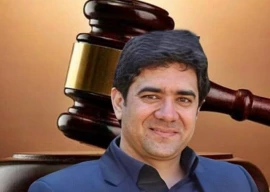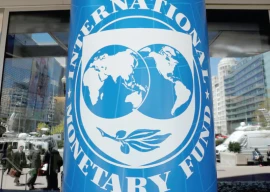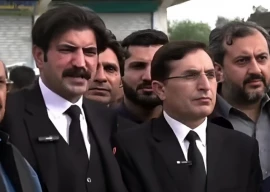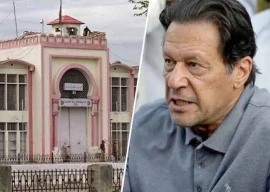
Despite the pressure, Pakistan, at the highest level, assured Tehran that it was committed to the gas pipeline project and other energy projects with Iran.
The commitment came from President Asif Ali Zardari during his meeting with visiting Iranian Interior Minister Mostafa Mohammad Najjar.
“Pakistan attaches high priority to early completion of the Iran-Pakistan gas pipeline and 1,000 megawatt Taftan-Quetta power transmission line,” President Zardari was quoted as telling the Iranian delegation on Wednesday.
Pakistan and Iran have envisaged a gas pipeline to meet the former’s growing energy needs, but the US has made it obvious that it opposes the project and has threatened Pakistan with sanctions.
“Promotion of intra-regional and inter-regional connectivity is key to socio-economic development of the people of this area, and Iran has a major role to play, along with Pakistan, due to our geo-strategic locations,” Zardari said, according to his media office.
President Zardari and Prime Minister Yousaf Raza Gilani both travelled to Iran over the last two months, while the Iranian foreign minister visited Islamabad recently.
During talks at the Presidency, Najjar was accompanied by Iranian Ambassador Mashallah Shakeri, Deputy Interior Minister Mahdi Mohammadifard, Deputy Minister and Head of the Crisis Management Organisation Hasan Ghadami and head of the Red Crescent Society Faghih.
The Pakistani side included Interior Minister Rehman Malik, Secretary General to the President M Salman Faruqui, Foreign Secretary Salman Bashir, Interior Secretary KM Siddiq Akber and other senior officials.
Zardari said the two countries needed to further deepen cooperation in all areas, particularly trade, energy, security, communication and infrastructure.
He said resource shortages, inadequate trade, smuggling, drug trafficking, border management and security were among the few challenges that the two countries needed to address together.
The president said the afgreement between the two countries to increase bilateral trade to $10 billion was “doable”.
Najjar, during meeting, added that Iran would donate $100 million for the rehabilitation of flood victims.
Published in The Express Tribune, September 29th, 2011.
COMMENTS (4)
Comments are moderated and generally will be posted if they are on-topic and not abusive.
For more information, please see our Comments FAQ









1724319076-0/Untitled-design-(5)1724319076-0-270x192.webp)











Real face of US. They can not allow regional cooperation. What with their economic woes ?How they would sell their arms if every thing is rosy between the neighbors.They will very shortly do some thing to derail Indo-Pak dialogue...just wait.
“Promotion of intra-regional and inter-regional connectivity is key to socio-economic development of the people of this area, and Iran has a major role to play, along with Pakistan, due to our geo-strategic locations,”. Deficit of energy is bottleneck and main obstacle in way of our economic growth and prosperity. Hence, all out efforts should be made to decrease the deficit and get ample energy supplies for the purpose. We should be quick and restless in this regard. We cannot afford to waste time and miss opportunity. Struggle for energy should be the top most agenda and priority. It is in the interest of US as well, for only stable and prosperous Pakistan can help and even guarantee the defeat of extremism. Problem with our implementers (bureaucracy) is that they do not demonstrate ownership of such agenda and fail to work 24/7. If they are not patriots, they at least be responsible to their duties. These projects should be completed even before the agreed time-table.
ok fine.. if US is having a pain in something* then it should provide pak with 1000mw, oil and gas to counter iran.. a thing that US cant give to pak...it has no right to veto it..!
I think the Prezzi is right. Your own interests come first but should not involve violence.